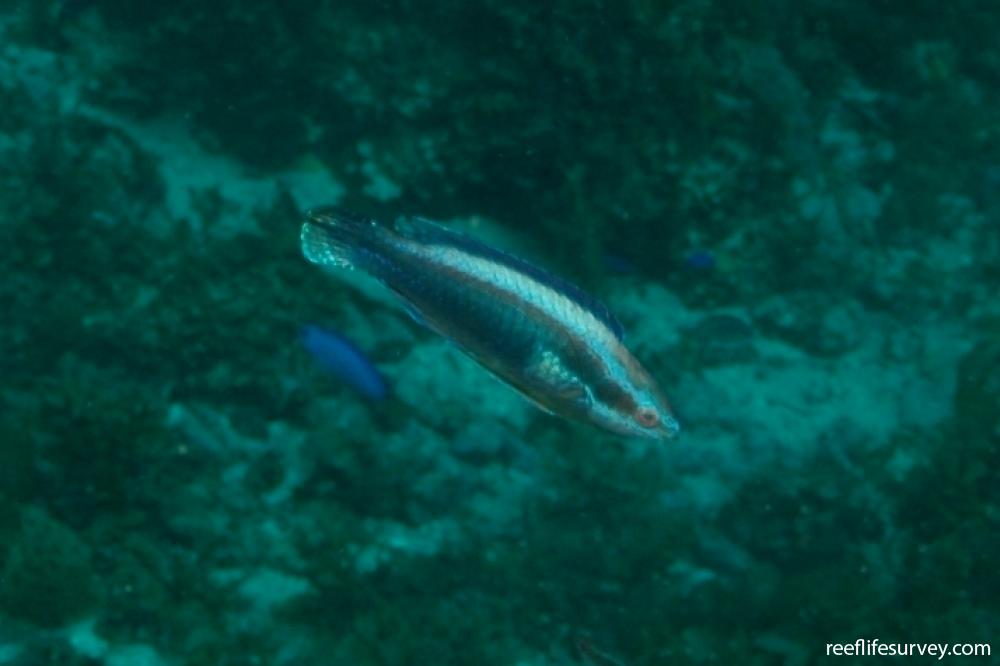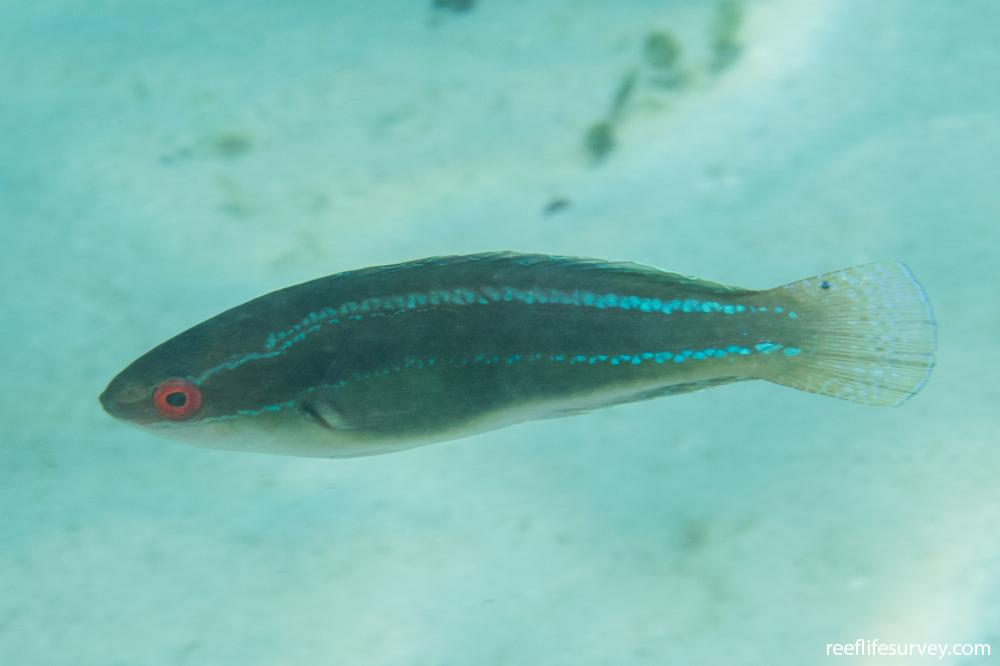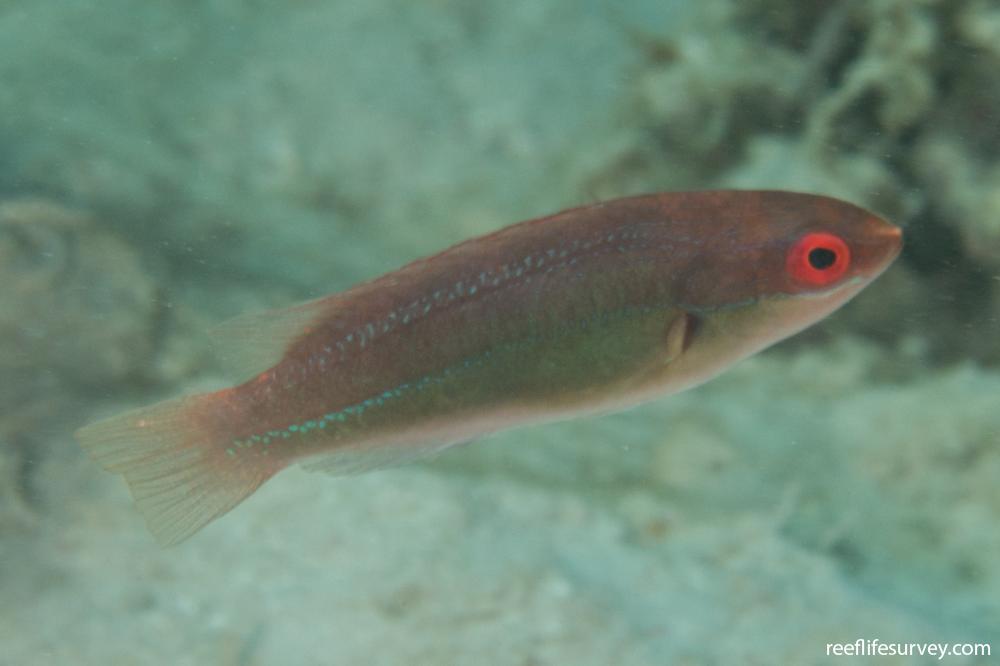Cirrhilabrus temminckii
Blue-stripe flasher | Japanese Rainbow Wrasse | Peacock Wrasse | Temminck's Fairy-wrasse | Threadfin Wrasse | Cirrhilabrus temminckiSimilar Species
Same Genus
Distribution
Tropical Indo-Pacific
Description
Reddish upper body, pink to white belly, stripe from snout along upper body to tail, which may be bright or merely lighter than surrounding area, line of spots from corner of mouth and following lateral line often condensing to form a short strip on rear of body. Males with more distinct markings and long pelvic fins.
Information
Max Size: 10 cm
Sea Temperature Range: 15.9-31.4°C
Depth: 3-35m
Habitat Generalization Index: 0.81
Also referred to as the SGI (Species Generalisation Index), this describes the habitat niche breadth of the species. Species with values less than 15 are found in a relatively narrow range of reef habitat types (specialists), while those over 25 may be found on most hard substrates within their range (generalists). Learn more here.
Conservation and Rarity
IUCN Status: Data Deficient
Occurrence: Infrequent (5.8% of sites)
Occurrence describes how often the species is found on surveys within its distribution. It is calculated as the % of reef sites surveyed by RLS divers across all the ecoregions in which the species has been observed
Abundance: Many (65 per transect)
Abundance is calculated as the average number of individuals recorded per RLS transect, where present.
Edit by: Joe Shields























